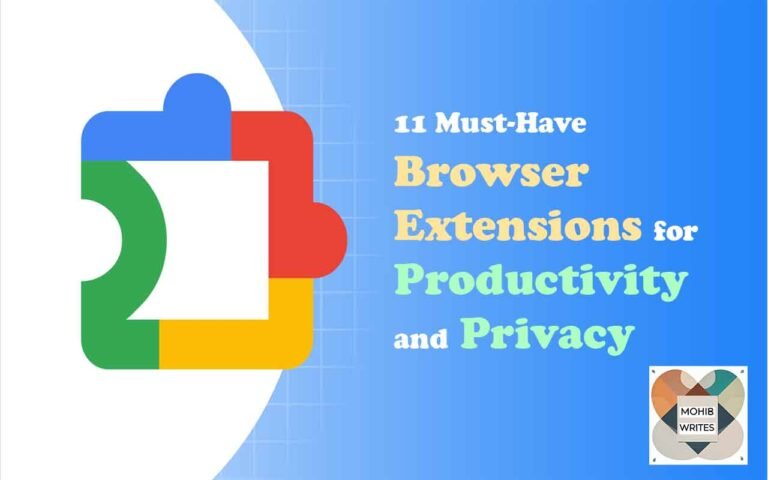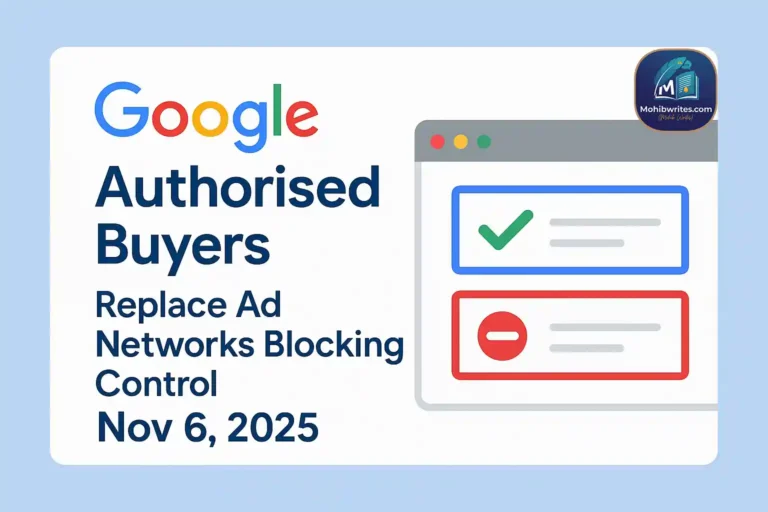Google is constantly evolving to maintain the integrity and privacy of its advertising ecosystem. On December 18, 2024, a key update was announced for the Google Platforms Program, which will go into effect on February 16, 2025. These changes are designed to enhance privacy practices, reflect new advertising surfaces like gaming consoles and connected TVs, and ensure transparency for users. This article will guide you through the main points of the policy update and what it means for AdSense publishers.
Understanding the Policy Update for Google Platforms
This update adapts to new privacy-enhancing technologies like secure multi-party computation, on-device processing, and trusted execution environments. These advancements enhance privacy and expand ad reach to platforms like connected TVs and gaming consoles. Publishers must now follow these updated rules to maintain the integrity of the Google Ads ecosystem.
As a publisher, you must follow these updated policies and ensure transparency for users interacting with your content. In this article, we’ll break down these updates and explain how you can comply to maintain your standing within Google’s advertising network.
Key Areas Affected by Google’s Policy Update
The new policies are organized into four major categories:
Content Policies
Behavioral Policies
Privacy-Related Policies
Requirements and Other Standards
Each category has rules to protect publishers and users, ensuring advertisers serve appropriate and trustworthy ads. Let’s look at each category in more detail.
1. Content Policies
Google’s content policies focus on what types of content are acceptable for monetization through its platforms. Publishers must ensure their content adheres to these rules or risk having their ads blocked or their accounts suspended.
Illegal Content
Google will no longer allow any content that promotes illegal activities or violates the legal rights of others. This includes content that promotes or engages in illegal actions.
Intellectual Property Abuse
Content that infringes on intellectual property rights, including copyrighted materials, is strictly prohibited. This policy aims to protect the creators of content and maintain a fair advertising environment. You can file a Counter-Notification by using this form on Google.
Dangerous or Derogatory Content
This includes content that promotes hatred, violence, discrimination, or harassment. Google’s updated policy strictly prohibits content that threatens or harasses individuals or groups based on characteristics like race, religion, or gender.
Misleading Content
Content that misrepresents facts or deceives users by suggesting false affiliations is banned. Publishers must ensure that their content provides accurate and transparent information to avoid misleading users.
2. Behavioral Policies
Behavioral policies focus on how publishers should engage with users and how ads should be presented.
Dishonest Declarations
Publishers must provide accurate information when using Google’s ad systems. False details or incomplete data may result in penalties.
Ad Placement
Google’s rules specify that ads should not interfere with the user experience. Ads should not obstruct content or force the user to interact with the ad inappropriately. This ensures that users have a seamless and non-disruptive browsing experience.
3. Privacy-Related Policies
Google’s privacy policies ensure the protection of user data. These policies are especially important for publishers engaged in personalized advertising.
Personalized Advertising
Google strictly prohibits publishers from targeting ads based on sensitive information, such as users’ health, financial status, or political affiliation, without explicit consent. These rules are part of Google’s commitment to maintaining user privacy.
Data Use
Publishers must ensure they have the right to use any audience data they collect. Furthermore, any third-party data used for advertising must comply with Google’s strict privacy standards. Failure to comply can result in account suspension.
4. Requirements and Other Standards
This section includes various operational and technical standards that publishers must meet to ensure a smooth experience for users. For example, publishers must ensure that their content is original, high-quality, and relevant to the users it targets.
How to Comply with Google’s Updated Policies
As a publisher, there are several steps you can take to ensure you comply with Google’s updated platform policies:
Review Your Content
Make sure your content aligns with the updated content policies, especially regarding intellectual property and illegal activities. Ensure that the content is clear, accurate, and does not mislead your audience.
Update Your Data Practices
Review your data collection methods and ensure that you are in compliance with the new privacy regulations. This includes updating any consent mechanisms for collecting user data and ensuring your advertising practices do not violate privacy rights.
Ad Placement and User Experience
Ensure that your ad placements do not interfere with user content or lead to disruptive experiences. Publishers must avoid placing ads in ways that make users interact with them unintentionally.
Stay Informed
Google’s policies may evolve, and it’s essential to stay up to date with these changes. Regularly review your compliance with the policies to avoid any violations that could impact your ability to monetize content.
Conclusion: Ensuring Compliance with Google’s Policy Update
The update to Google’s platforms’ program policies highlights the company’s ongoing efforts to maintain a responsible, privacy-focused advertising environment. These new rules improve user trust, protect content creators, and ensure publishers stay transparent and compliant. By following these guidelines, you can continue to benefit from the Google AdSense program and ensure a smooth advertising experience for your audience.
In conclusion, make sure to:
- Regularly review and update your content to align with Google’s policies.
- Keep your data collection and ad targeting practices within the bounds of privacy laws.
- Ensure your ad placements enhance the user experience and don’t disrupt content consumption.
By doing so, you will not only protect your account from potential penalties but also contribute to a safer, more user-friendly digital advertising ecosystem.







